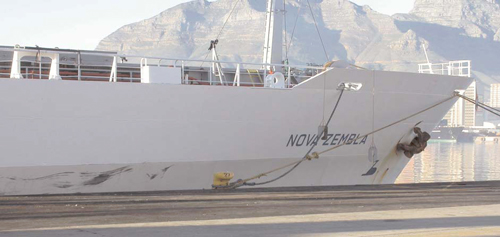
South Africa's subtropical climate is favorable for citrus fruit production. South Africa annually exports roughly one million tons of citrus fruit, composed primarily of oranges, grapefruit, and lemons, to various overseas destinations. During shipment, the carbon dioxide (CO2) and temperature levels surrounding the fruit play a vital part in preserving its freshness. A typical shipment from Maputo, South Africa, to the USA takes about two weeks. During transit, many shipping companies promise to keep the CO2 and temperature within acceptable tolerances.
To confirm this, the South African Citrus Research Institute initiated a project to measure CO2 and temperature levels during a routine shipment to see whether the prescribed levels are continuously maintained. To reduce the cost of the study, the challenge was to measure CO2 levels at eight points within the citrus cargo hull without using eight CO2 analyzers. CS Africa developed the monitoring system using a CR10X datalogger, a VICI 8-port rotary valve (stepper motor controlled), a LI-COR LI-820 CO2 analyzer, hundreds of meters of tubing, and a vacuum pump.
A standard measurement cycle consisted of setting the rotary valve to the first port with a CR10X control port, initiating the vacuum pump, drawing a sample for 60 seconds through the connected tube, taking a CO2 reading with the LI-820, then stepping the valve to the next position with a CR10X control port. This sequence was repeated until all eight lines were measured. Temperature was also simultaneously logged using thermocouples.
To accommodate the client's limited budget, CS Africa could not use an expensive vacuum pump. Instead, we effectively modified an inexpensive air pump. The first instrumented shipment showed the measurement system worked as planned for the two-week travel time. Beginning on day two, the CO2 level not only exceeded the prescribed limits, it exceeded the LI-820's measurement range of 5000 ppm. To determine what the CO2 levels are throughout the shipment, a 20,000 ppm optical bench has been fitted for the next trip.
Case Study Summary
Application
Monitoring perishable goods during overseas shipmentLocation
Transatlantic vessel at sea between South Africa and the United StatesContributors
Johan Visagie and Charl LeRoux, Campbell Scientific AfricaParticipating Organisations
South African Citrus Research InstituteMeasured Parameters
Carbon dioxide (CO2) levels, temperatureView the PDF